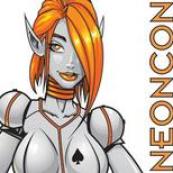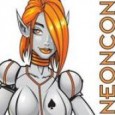 GM: Jeremy Tidwell
GM: Jeremy Tidwell
Players: Andrew, Colin and Sean
Jerry is working on this game and it’s in a pretty playable form now, still a pile of notes but a functional pile.
Here’s the premise of the game, the Dustbowl of the 1930s never ended. It’s swept across the entire world and left nothing but small patches of miserable people with nothing left to live for. The Dust itself is the settings primary antagonist. It gets in your head and drives you away from people, isolating everyone until they perish from their own apathy. Left alone, even these small communities will wither and die. Whether these communities know it or not they have a few cornerstones. Individuals that unknowingly hold back the tide of the Dust. They may be leaders or miscreants, philanthropists or curmudgeons, but regardless, if they turn to the Dust, soon will the rest of the community and there will be nothing left.
Of course these cornerstones, or Pillars of the community can’t keep it together on their own. Left untended, they will succumb themselves, which is where Artists come in. People that can see the Dust for what it is, a malevolent force that drives people away from each other. The Artists have a gift, the art they create is in mending souls. So they travel, like Michael Landon (http://en.wikipedia.org/wiki/Highway_to_Heaven) to heal the ailing world, help these Pillars find something worth living for and worth caring about.
Each scene is set with three characters. An Artist, a Pillar and the Dust, which acts as the pillars voice of doubt and self loathing, albeit, can be heart perfectly by the Artist and recognized as a malevolent entity (even though the Pillar just assumes the dust is their own weakness). The game plays through the Artist and the Dust playing tricks to represent their influence over the Pillar. At the end of the hand, the scene is closed and the winner and loser divvy up a few rights (answering a question about the Pillars history, narrating the end of the scene, and or assigning them more hope or dust).
We got through three full scenes, or one act during the two-ish hour game.
Act 1
I played the Artist, Henry a former dilettante, trying to help Farmer Tom believe that his parish still needed him. I won the round and narrated him having a dinner for the community and everyone showing up. Colin, playing the dust answered a question of his past that his wife didn’t love him because before they were married he beat and raped her.
Next round Andrew played his Artist (Maria? The Artists, although PCs are somewhat irrelevant to the story, they comes to help the Pillars) to talk to the governor (an old army vet who people believed was a war hero). I played the Dust and kept trying to drive him to his bottle, into the Artist’s arms for sex or to kill the Emmanuel, the “actual” war hero left behind by his sergeant, now the governor. Again the cards favored me. I took narration again, and sent Bernard (?) off in a drunken stupor to start loading bullets in his old service revolver.
Third scene, I played the Pillar Raul who was prostituting his sister to make ends meet at the house. I was fearful and untrusting of the Artist, who just wanted me to believe that all the blood on my hands (and I opened the scene butchering a chicken so their literally was blood on my hands) could be washed away and people could forgive. For Raul this seemed pretty implausible, and the Dust didn’t have to do much to make me resist the Artist. The other Pillars may have been miserable people but Raul really hated himself with a passion. Colin playing the Artist won, gave Raul some hope and we found out that Raul killed his father for trying to molest his little sister, the same one he was now pimping out. Rough AND ironic.
What rocked
We made these people plenty miserable, and it was fun seeing them with problems that couldn’t be easily fixed. The Dust definitely started with the advantage (both mechanically and in within the fiction by being in the Pillar’s head, something he believes is his own doubt), which meant we were all fighting an uphill battle for their salvation and survival.
I had a blast playing with Colin and Andrew. At one point Colin was talking to me as the Pillar and the things he said seemed strangely encouraging… then I realized he was the Artist. “It was Colin playing, so I just assumed he was the Dust.”
Jerry’s making a game that isn’t about punching things in the face, which I really appreciate. Creating meaningful conflicts that aren’t physical combat is a long cry from RPG roots and is still hart to do. I really applaud his efforts in creating something that is about people’s connections to each other.
What could have been improved
The Pillar lacked in agency. They were just getting torn back and forth between the Dust and the Artist.
The Dust as “voice in your head” could essentially be relentless in harassing the Pillar. While it had no mechanical benefit, it definitely allowed one player more influence in the fiction.
The game was dark, really dark, but I needed more context to go there. I kept trying to set up what I thought were tragic situations but they weren’t depraved enough for what the game demanded. I was having a hard time going there without some backdrop to turn my dials to.
There wasn’t much “character” to the Artist, play one I felt almost as disembodied as I did playing the Dust, I was just there trying to make the Pillar believe in something. Yeah, my character had a story, etc, but none of that really mattered during the game.
Since we were all in the same town, it would make some sense that the artists traveled together, but since every scene used the format of Artist – Pillar – Dust, we never got a chance to talk to each other as Artists. Actually that scene format seemed to lock out a lot of possible scenes (like the Pillar Father Tom talking to his wife, etc).
The game needed some more meaningful mechanical choices. As is we got points for winning tricks and having the most major arcane (using a tarot deck) in our discard pile. The strategy that came out immediately was playing all cards but the major Arcana. Colin had some good suggestions here about holding onto cards, but I think they’ll have to be tinkered with in play because playing the cards is part of taking an action.


Did you get an explanation for the name? My French is a little rusty, but if I recall Atelier is French for workshop. When I saw your tweet that you were playing Atelier, I imagined you were building some pinocchio type creations in rustic pre-WWII France. It doesn’t really evoke the sort of Grapes of Wrath setting you’ve described. So what’s the story there?
Jeremy told me what the name meant but it went past me. Colin was calling it “Touched by a Mage” as a mash up of “Touched by an Angel” and “Mage”, but I don’t think Jerry is going to go with that either.
We were playing and John Wick walks up because we’re supposed to do an interview and he listens to us play for a minute and then asks what we’re doing. Jeremy tells him about it and John’s only reaction: You gotta change that name.
So yeah, is a working title, I’m sure Jeremy will change it before release.
Yeah, the name and the game both sound promising, just not together. Maybe I’ll write that French puppet game.